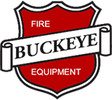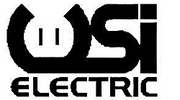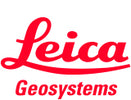- No products in the cart.
What Are Tankless Water Heaters? Your Guide to Efficient Heating Components
17
Apr
In short, tankless water heaters—also known as on-demand water heaters or instantaneous water heaters—are systems that directly heat water without the use of a storage tank. Unlike a traditional water heater, where a predetermined amount of water is constantly heated and stored in a large tank, tankless water heaters deliver a limitless supply of hot water instantaneously.
Tankless water heaters are a cost-effective conservation option, with energy star qualified models lowering the energy bill of a household by as much as 30-40%, and on average, they last up to 20 years, reducing waste and fossil fuel usage.
In this article, we’ll take a closer look at how tankless water heaters work, the difference between electric and gas models, and where you can buy the right tankless water heater to suit your needs.
How Do Tankless Water Heaters Work?
Generally, the tankless water heater process involves four actions:
Water Flow – Whenever a hot water tap is turned on, cold water enters the tankless unit via an inlet pipe.
Heat Exchanger – Once inside the unit, the cold water passes through a heat exchanger—either a gas burner or electric heating element—which rapidly heats up the water as it moves through the exchanger. The colder the ground temperature and water coming into the unit, the higher the heater will need to raise the water temperature.
Instantaneous Heating – After the water is rapidly heated to 100-115 degrees Fahrenheit, it exits the unit and travels straight to the faucet or appliance.
Continuous Water Supply – The flow rate of a tankless water heater is measured in gallons per minute (GPM). As long as the demand for hot water does not exceed the unit’s flow rate, it will provide a continuous supply. In order to determine your specific flow rate needs, add up the GPMs for all fixtures and appliances that you expect to use at the same time in your home or building.
Electric vs. Gas Tankless Water Heater
When trying to decide between a gas or electric tankless water heater, it’s important to consider several factors, including hot water demand, available energy sources, installation requirements, and cost considerations.
While both types of units will be ideal for long, hot showers and steamy, relaxing baths, there are definite pros and cons to each (which is why some models, such as the TurboMax T-23, are equipped to be either electric or gas).
Tankless Gas Water Heater
Pros:
- High Flow Rate
- Faster Heating
- More Energy Efficient
- Reliable Operation
Cons:
- Higher Initial Cost
- Venting Requirements
- Limited Installation Flexibility
Tankless Electric Water Heater
Pros:
- Lower Initial Cost
- Compact Size
- Easy Installation
- No Combustion Byproducts
Cons:
- Limited Flow Rate
- Slower Heating
- Electricity Costs
- Reliance on Electricity
Where to Buy Tankless Water Heaters
If you’re looking for top-of-the-line tankless water heaters from name-brand dealers at below-retail prices, then Wholesale Home has you covered. They know it is important to make a home as energy efficient as possible, and they experienced firsthand how steep chain retail prices often make that effort infeasible. That’s why they’re committed to offering name-brand tankless water heaters manufacturers, such as Stiebel Eltron and Rheem, at guaranteed lowest pricing.
Browse our extensive collection of gas, electric, and hybrid tankless water heaters today!





































